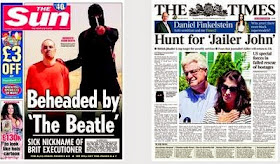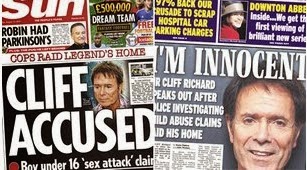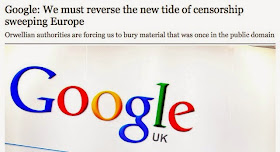President Obama on the beheading of journalist James Foley, as reported by BBC News: "An act of violence that shocks the conscience of the entire world."
James Foley's mother Diane in a statement: "We have never been prouder of our son Jim. He gave his life trying to expose the world to the suffering of the Syrian people. We implore the kidnappers to spare the lives of the remaining hostages."
SubScribe: "We mourn not only James Foley, but those others whose deaths we may have overlooked. And as we hope - and possibly pray - for the release of Austin Tice, Peter Greste and the rest, maybe we will remind ourselves that ours is an honourable calling and that we have a duty to follow it honourably. Whether we're writing about Kalashnikovs or Kardashians."
The Met Police in a statement: "The MPS counter-terrorism command (SO15) is investigating the contents of the video that was posted online in relation to the alleged murder of James Foley. We would like to remind the public that viewing, downloading or disseminating extremist material within the UK may constitute an offence under terrorism legislation."
David Allen Green @DavidAllenGreen on Twitter: "Some may say viewing video should be an offence; but it isn't, and @metpoliceuk should not publish false alarmist statements about the law."
Tim Walker @ThatTimWalker on Twitter: "In the days when print & TV editors controlled what we saw, a video of a barbaric murder would never be seen. Internet must grow up v quickly."
emily bell @emilybell on Twitter: "I am interested in the semantics which have Twitter 'censoring' content but which would have news organisations making 'editorial decisions'."
The Guardian in a leader on Cliff Richard: "The relationship between the police and the press in this case raises, yet again, wider and troubling issues about the way that due process, and the presumption of anonymity for suspects, including celebrities, lacks the robustness that was called for by Leveson and to which the police – and the press – are supposed to be committed. When the dust settles on this week’s events, there could be a strong case for fresh reflection and a stronger set of rules to prevent prejudicial coverage of such cases."
The Telegraph in a leader: "Of course, it is right that any allegation should be properly investigated and, again, this will likely involve some necessary liaison with the media. However, it is odd that such a degree of advance publicity did not occur in other celebrity cases. Justice should proceed equally and in a demonstrably fair manner – regardless of how well known the person under investigation might be."
Steve Hewlett in the Guardian: "The BBC's real mistake would appear to be that having got its exclusive and the deal with the police it simply went over the top producing too much coverage – including a helicopter with aerial images of the singer's home – exposing itself to the sort of questions usually directed straight at the tabloid press about fairness to suspects in these high-profile historic sex abuse inquiries."
Dominic Ponsford on Press Gazette on the BBC's Cliff Richard scoop: "The BBC deserves praise in my opinion for getting there first and for having the courage to run with it so forcefully, complete with helicopter. As we know from Rolf Harris and others, publicity around a case can lead to more witnesses coming forward.It is tough on Richard to face the taint of this sort of coverage when he has not even been questioned yet himself. But once the police had undertaken such a big raid on his home, what is going on becomes a matter of public record."
BBC director-general Lord Hall in a letter to Home Affairs Select Committee chairman Keith Vaz: "I believe that BBC journalists have acted appropriately in pursuing this story. As you rightly say, the media has a right to report on matters of public interest."
The chief constable of South Yorkshire police, David Crompton, in a letter to Home Affairs Select Committee chairman, Keith Vaz: "The aerial photography used by the BBC was, in my opinion, disproportionate. South Yorkshire police did not encourage the use of a helicopter and actively sought to delay its arrival at the scene. Ultimately the broadcast had the effect of making the house search look heavy handed and intrusive. I recognise this has caused concern and it is for the BBC to justify why it felt its actions were appropriate."
Letter in the Telegraph: "SIR – Who’s next? The Duke of Edinburgh? Archbishop Tutu? The Pope?"
Jeremy Burton
Shurlock Row, Berkshire
Geoffrey Robinson QC in the Independent: "The CPS has taken up to 2 years to tell journalists like Patrick Foster that they will not be prosecuted, after unnecessary dawn raids, and publicity every time they are bailed. This lack of care for their liberty is amoral, because it subjects them to drawn-out psychological cruelty. If the CPS cannot decide whether to prosecute 3 months after receiving the police file, it should not prosecute at all."
Paul Lewis @PaulLewis on Twitter: "Hard for the United States to condemn foreign countries for detaining journalists when it is happening, with such frequency, in #Ferguson."
Rory Carroll @rorycarroll72 on Twitter: "In the old days journos ducked when projectiles zinged past. Now we stand around snapping pics and tweeting. I miss the old days. #ferguson"
Journalists quoted by Charlotte Higgins in the Guardian on the BBC after the Hutton Report: “The BBC always buckles, always folds. You feel that as a journalist, they will abandon you; if you take a risky story to them it’s as if you are actively trying to get them into trouble. There is an institutionalised anxiety and mistrust.”
The Sunday Times [£] in a leader on Jeremy Paxman's one man show: "Paxman does not do stand-up comedy. It is more the blossoming of a grumpy old man enjoying his dotage and no longer constrained by anyone’s rules but his own. There is talk of a national tour — MPs, minsters and the BBC had better put their tin hats on. It’s good to have him back"
The Guardian's readers' editor Chris Elliott on the paper's decision to run the This World ad accusing Hamas of using children as human shields in Gaza: "I agree with the readers that whatever the intention, the biblical language, the references to child sacrifice, all evoke images of that most ancient of antisemitic tropes: the blood libel. The authors may believe that they have steered a careful course by aiming these matters at an organisation, Hamas, rather than all Palestinians, but the association is there. If an advertisement was couched in similar terms but the organisation named was the IDF rather than Hamas, I can’t imagine the Guardian would run it – I certainly hope it wouldn’t. I think that’s the issue."
Croydon Advertiser Glenn Ebrey on his blog after Crystal Palace sacked its manager messing up the paper's football season preview supplement: "Oh bugger. This was my immediate reaction on Twitter, when news of Tony Pulis’ departure from Crystal Palace was confirmed on Thursday night."
Clay Shirky on Medium: "The death of newspapers is sad, but the threatened loss of journalistic talent is catastrophic. If that’s you, it’s time to learn something outside the production routine of your current job. It will be difficult and annoying, your employer won’t be much help, and it may not even work, but we’re nearing the next great contraction. If you want to get through it, doing almost anything will be better than doing almost nothing."
Brendan O'Neil in the Telegraph: "The Telegraph has received a flurry of G-notices – four this week alone. Among the latest were two concerning stories published in 2001, about the arrest of three men following the discovery of explosives at an apartment in Dublin. These are hardly trivial matters, yet internet users in Europe, notably in Britain and Ireland, will no longer find the stories when they turn to the globe’s principal search engine – Google."
Daily Mail: "A newspaper sales director who 'terrorised' a shopkeeper and ‘viciously’ smashed up an off-licence has managed to get his conviction successfully wiped from Google using the EU’s controversial 'right to be forgotten' ruling."










No comments:
Post a Comment